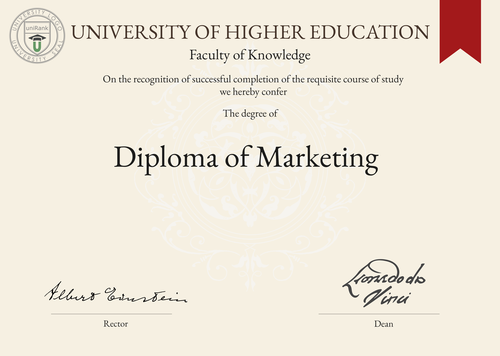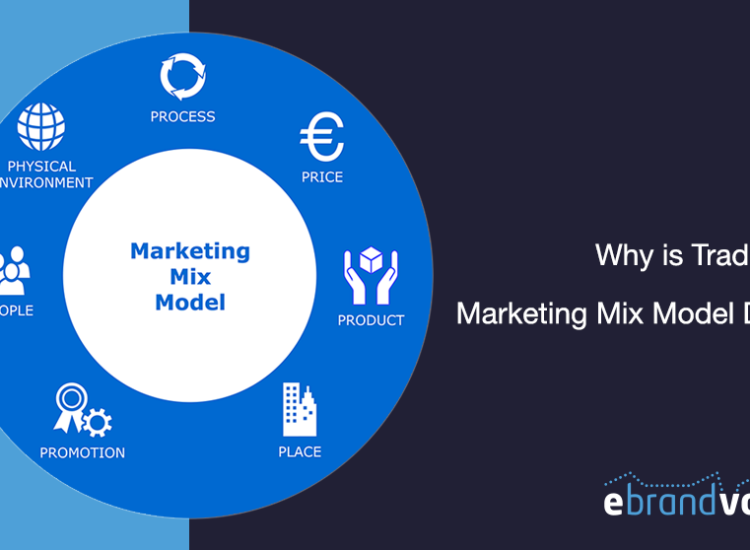In today’s dynamic business landscape, effective marketing is no longer a luxury but a necessity. Whether you’re promoting a small local business or a multinational corporation, the demand for skilled marketers is at an all-time high. This makes a marketing degree one of the most valuable credentials you can obtain. In this article, we’ll explore why pursuing a marketing degree can be your ticket to a flourishing career in 2024 and beyond.
Toc
Introduction to Marketing Degree

Before we dive into the reasons why a marketing degree is essential for your career in 2024, let’s first understand what marketing is all about. In simple terms, marketing is the process of identifying, satisfying, and keeping customers through various strategies and techniques. It involves understanding consumer behavior, market trends, and creating effective messaging to communicate with potential buyers.
In today’s digital age, marketing has evolved beyond traditional methods such as print ads and TV commercials. With the rise of social media and online platforms, marketers now have access to a vast pool of data that can guide their decisions and campaigns. This shift has made marketing even more crucial for businesses looking to connect with their target audience.
What is a Marketing Degree?
A marketing degree is an academic program that equips students with the skills and knowledge needed to promote products and services effectively. The curriculum typically covers a range of subjects, including consumer behavior, market research, advertising, digital marketing, and strategic planning. This educational foundation prepares graduates to enter a variety of roles within the marketing field.
Why a Marketing Degree is Valuable in 2024
The job market is constantly evolving, and to stay ahead of the curve, professionals need to have the right skills. Here are some reasons why a marketing degree can be your ticket to success in 2024:
- High Demand: As mentioned earlier, effective marketing is essential for businesses of all sizes. This means that companies will continue to seek skilled marketers who can help them reach their target audience and drive sales. With a marketing degree, you’ll have a competitive edge over other candidates vying for the same roles.
- Diverse Career Opportunities: A marketing degree opens up opportunities in various industries such as retail, healthcare, technology, and more. Additionally, within the marketing field, you can specialize in areas like digital marketing, brand management, market research, and public relations. This flexibility allows you to tailor your career path according to your interests and strengths.
- Transferable Skills: The skills gained through a marketing degree are highly transferable across industries. For instance, strong communication skills, data analysis abilities, and strategic thinking are valuable in almost any job role. This means that even if you decide to switch careers down the line, your marketing degree will still hold value.
The Growing Demand for Marketing Professionals

With the increasing reliance on digital marketing, the demand for skilled professionals in this field is only going to grow. In fact, a report from McKinley Marketing Partners predicts that by 2024, there will be a 10-20% increase in demand for marketing positions across industries.
This rise in demand is due to several factors:
Digital Transformation
As businesses continue to embrace digital transformation, marketing has become increasingly sophisticated and data-driven. Companies are investing heavily in digital tools and technologies to enhance their marketing efforts, leading to a growing demand for professionals who are adept in areas such as search engine optimization (SEO), content marketing, social media strategies, and analytics. Understanding how to navigate these digital landscapes is crucial in establishing a strong market presence and connecting with consumers effectively.
Moreover, this transformation is not only reshaping existing roles but also creating new career paths. Positions such as digital marketing specialists, content strategists, and social media managers are now essential as organizations seek to maintain relevance in ever-evolving online environments. Those with a marketing degree are well-positioned to take advantage of these opportunities, as their education typically includes training in the latest digital marketing techniques and trends. Emphasizing expertise in digital marketing will be paramount for students and professionals alike, setting them apart in a competitive job market.
In summary, the demand for marketing professionals is poised to grow significantly in the coming years as businesses adapt to an increasingly digital world. By pursuing a marketing degree, individuals can develop the knowledge and skills necessary to thrive in this dynamic environment, paving the way for a successful career in 2024 and beyond.
Data-Driven Decision Making
In today’s marketing landscape, data has emerged as a pivotal asset that drives strategic decisions. The ability to collect, analyze, and derive actionable insights from data allows marketers to understand consumer preferences, evaluate campaign effectiveness, and identify market trends. A marketing degree equips students with the necessary analytical skills and tools to interpret data effectively, enabling them to make informed decisions that can enhance business performance.
As companies increasingly rely on metrics to gauge success, professionals who can turn data into meaningful narratives become invaluable. This capability includes designing surveys, leveraging analytics platforms, and using data visualization techniques to present findings to stakeholders. By embracing a data-driven mindset, marketers can tailor their strategies to meet the demands of their audience, ensuring that marketing efforts resonate and yield results. Consequently, the integration of data science into marketing underscores the vital need for professionals who possess both creative ingenuity and analytical acumen, making a marketing degree essential for aspiring marketers in an ever-evolving marketplace.
Personalization
In an age where consumers are bombarded with information, personalization has become a cornerstone of effective marketing strategies. A marketing degree instills the importance of tailoring messages to meet the specific needs and preferences of individual consumers. By leveraging data analytics and insights gathered from various customer touchpoints, marketers can create targeted campaigns that resonate on a personal level, ultimately fostering stronger connections between brands and their audiences.
The trend toward personalization also involves utilizing advanced technologies such as artificial intelligence and machine learning, which allow marketers to predict consumer behavior and customize offerings accordingly. This ability to deliver the right message at the right time not only enhances customer satisfaction but also drives loyalty and increases conversion rates. As businesses strive to stand out in a crowded market, those with a marketing degree equipped with skills in personalization will be at the forefront of developing innovative campaigns that increase engagement and maximize return on investment. Thus, embracing personalization strategies will be crucial for marketing professionals aiming to thrive in 2024 and beyond.
Diverse Career Opportunities with a Marketing Degree

A marketing degree offers a diverse range of career opportunities, as the skills gained can be applied to various industries and roles. Some potential career paths include:
Advertising
Advertising is one of the most prominent career paths for individuals with a marketing degree. In this field, professionals create campaigns that promote products, services, or brands through various media outlets. This role often involves developing compelling messages, conducting market research to understand target audiences, and collaborating with creative teams to produce engaging content. Whether working in traditional advertising agencies or in-house marketing departments, individuals in advertising must stay ahead of industry trends and consumer behaviours to create effective campaigns that capture attention and drive sales.
Brand Management
Brand management focuses on developing and maintaining a company’s brand image and reputation in the marketplace. Professionals in this area work to establish a strong brand identity, positioning it effectively against competitors. This role often involves strategic planning, market analysis, and consumer insight to ensure that the brand resonates with its target audience. Successful brand managers are adept at crafting messaging that aligns with the company’s values and vision, and they play a critical role in fostering brand loyalty among consumers.
Market Research
Market research is another key area where marketing graduates can excel. This profession involves collecting and analyzing data to understand market trends, consumer preferences, and competitive dynamics. Market researchers employ various methodologies, such as surveys, focus groups, and data analytics, to derive insights that inform business strategies. As companies seek to refine their offerings and improve customer experiences, the demand for skilled market researchers who can provide actionable recommendations is on the rise.
Digital Marketing
With the increasing shift toward online platforms, digital marketing has emerged as a crucial domain for marketing professionals. This field encompasses various specializations, including social media marketing, content marketing, email marketing, and pay-per-click advertising. Digital marketers are responsible for creating impactful online campaigns that engage consumers across different digital channels. Understanding search engine optimization (SEO) and analytics tools is vital in this role, as these skills help ensure that marketing efforts are measurable and effective.
Public Relations
Public relations (PR) professionals manage a company’s communication with the public and media, aiming to build a positive reputation and maintain a favorable image. Those in PR create press releases, manage social media accounts, and coordinate events to enhance brand visibility. Effective communication and relationship-building skills are essential in this role, as PR practitioners must navigate interactions with various stakeholders, including journalists and influencers.
In conclusion, a marketing degree opens doors to a wide array of career opportunities across multiple sectors. From advertising to public relations, the versatile skill set developed through marketing education equips individuals to thrive in a dynamic job market, allowing them to pursue fulfilling careers that can adapt to their interests and strengths. As marketing continues to evolve, professionals who stay current with trends and technologies will find themselves with numerous avenues for growth and success.
Core Subjects Covered in a Marketing Degree

To equip students with the knowledge and skills necessary to excel in the marketing field, a marketing degree typically covers a broad range of core subjects, including:
Marketing Principles
Marketing principles provide students with an understanding of the fundamental concepts and theories that underpin marketing. This subject explores topics such as market segmentation, consumer behavior, and the marketing mix (product, price, place, and promotion), providing a foundation for further learning in advanced marketing courses.
Market Research
Market research is a critical aspect of any successful marketing strategy. In this subject, students learn how to use various research methodologies to gather insights on consumer behavior and market trends. They also develop skills in data analysis and interpretation, which are essential in making informed marketing decisions.
Advertising and Promotion
Understanding how to create effective advertising campaigns is a core skill for marketing professionals. In this subject, students learn about traditional and digital advertising methods, including media planning, content creation, and campaign evaluation. They also develop an understanding of consumer psychology and the role it plays in influencing purchase decisions.
Brand Management
Brand management is all about creating and maintaining a strong brand image. This subject delves into the strategies used to build a brand identity, differentiate it from competitors, and maintain its reputation among consumers. Students also explore the impact of branding on consumer behavior and how to measure brand performance.
Digital Marketing
As digital platforms continue to dominate the marketing landscape, it is essential for students to gain a strong understanding of digital marketing. This subject covers topics such as search engine optimization (SEO), social media marketing, and email marketing. Students also learn how to track and analyze data from various digital channels to improve campaign performance.
Public Relations
Public relations plays a vital role in managing a company’s reputation and communication with the public. In this subject, students learn the principles and techniques of public relations, including crisis management, media relations, and event planning. They also develop skills in creating persuasive messaging and building relationships with stakeholders.
Sales Management
Sales are at the heart of any business, making sales management a crucial component of marketing education. This subject covers sales techniques, customer relationship management (CRM), and the sales process from lead generation to closing a deal. Students also explore strategies for managing a sales team and driving revenue growth.
International Marketing
As businesses expand globally, there is an increasing demand for marketing professionals with knowledge of international markets. This subject covers key concepts and strategies for conducting marketing activities in different countries, including market entry, cultural considerations, and global consumer behavior.
Conclusion
In conclusion, earning a marketing degree equips students with essential skills and knowledge necessary for navigating the dynamic landscape of modern marketing. With the increasing demand for skilled marketers, versatile career opportunities, and competitive salaries, a marketing degree can be a smart investment for anyone looking to build a successful career. Furthermore, the program’s emphasis on hands-on experience, networking, and access to cutting-edge tools prepares graduates to meet the evolving challenges of the industry. By thoughtfully selecting the right marketing program, students can set themselves up for rewarding careers that make an impact in various sectors. Embracing the principles and practices learned during their degree, future marketers will be well-positioned to influence consumer behaviour and drive organizational success in an ever-changing marketplace.








